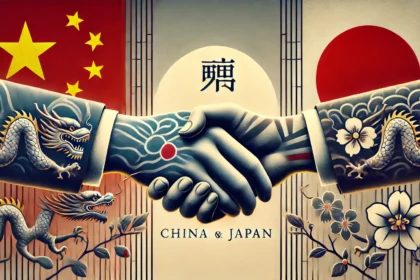Introduction:
Japan’s recent release of treated wastewater from the Fukushima nuclear plant into the ocean has ignited a wave of anger and fear among Chinese netizens. The strong backlash, which includes hostile commentary on social media, nuisance calls to Japanese businesses, and protests, has escalated into a diplomatic issue between the two nations. Despite reassurances from international experts regarding the safety of the wastewater release, the incident has fueled a nationalistic response in China, highlighting the complex intersection of environmental concerns, public sentiment, and geopolitics.
The Wastewater Release: An Overview
The release of treated wastewater from the Fukushima nuclear plant follows the 2011 disaster, where an earthquake and tsunami led to a nuclear meltdown. The wastewater contains tritium, a radioactive element that experts, including the International Atomic Energy Agency (IAEA), have stated is not harmful to human health when diluted to safe levels. Japan’s decision to release the water was made after extensive review, and the process was deemed necessary to prevent the over-accumulation of radioactive water on-site.
However, this move has sparked international debate, with China leading the opposition. The Chinese government has condemned the release as irresponsible, accusing Japan of ignoring the potential environmental and health risks. In contrast, Japan and other international experts argue that the release is safe and that similar discharges are common practice in nuclear facilities worldwide.

Chinese Public Reaction: From Anger to Action
The news of the wastewater release was met with a wave of fury on Chinese social media platforms like Weibo. Users have expressed their anger through harsh comments and calls to boycott Japanese goods, reigniting historical grievances between the two countries. Nationalist sentiment, already heightened by previous territorial and political disputes, found a new rallying point in the Fukushima incident.
In response to the release, some Chinese citizens engaged in panic buying of salt, driven by the misconception that consuming iodine-rich salt would prevent radiation poisoning. Supermarkets in various cities reported a sharp increase in salt sales, reflecting the public’s fear and misinformation about radiation exposure.
Moreover, Chinese netizens took their anger beyond online platforms, directing it at Japanese businesses operating in China. Restaurants, shops, and even the Japanese Embassy in Beijing received nuisance calls, disrupting daily operations. The Japanese government, in turn, lodged formal complaints and urged Chinese authorities to ensure the safety of its citizens and businesses in China.

China's Official Stance and Actions
The Chinese government has been vocal in its criticism of Japan’s actions. Chinese officials have called the wastewater release a selfish and reckless move that disregards global environmental concerns. China also imposed an immediate ban on all seafood imports from Japan, citing concerns over potential radioactive contamination. This ban has significant economic implications, as Japan is a major supplier of seafood to China.
State media in China has also played a role in shaping public opinion. Chinese news outlets have consistently highlighted the potential risks of the wastewater release, emphasizing the dangers of nuclear contamination and accusing Japan of threatening marine life and human health. This narrative has further fueled public fears and anti-Japanese sentiment, leading to a surge of nationalism.
International Perspectives and Comparisons
The situation has drawn attention beyond China and Japan, with other countries in the region expressing concern over the potential environmental impact. However, it is important to note that nuclear power plants worldwide, including those in China, regularly discharge water containing tritium into the ocean. In fact, experts have pointed out that China’s own nuclear facilities have released wastewater with higher tritium levels than the Fukushima release, underlining a practice that is generally accepted as safe within the global nuclear industry.
Japan has defended its actions by citing international standards and transparency. The IAEA conducted an independent review of Japan’s plan, concluding that the release would have a negligible impact on human health and the environment. Despite this endorsement, the distrust between China and Japan has exacerbated public concerns, with many Chinese citizens viewing the wastewater release as a direct threat.
The Role of Nationalism and Historical Tensions
China’s strong reaction to the Fukushima wastewater release cannot be understood without considering the historical and geopolitical context. The relationship between China and Japan has long been fraught with tension, stemming from historical grievances, territorial disputes, and differing political ideologies. Nationalist sentiment in China often finds an outlet in anti-Japanese rhetoric, particularly during periods of heightened diplomatic friction.
The Fukushima incident has become a flashpoint for these underlying tensions. Chinese netizens have framed the wastewater release as another example of Japanese disregard for global welfare, tapping into the collective memory of historical conflicts. This nationalistic fervor, amplified by state media and social media platforms, has escalated the situation beyond a mere environmental debate.

Impact on Sino-Japanese Relations
The backlash over the Fukushima wastewater release has added another layer of complexity to the already delicate Sino-Japanese relations. Japan’s request for China to protect Japanese citizens and businesses underscores the diplomatic fallout from this incident. While economic ties between the two countries are substantial, these political and social tensions risk undermining mutual interests.
Japan has sought to address the concerns raised by China and other countries by emphasizing the scientific basis for its actions and the minimal environmental impact of the release. However, the issue has become deeply entangled with national pride and historical grievances, making diplomatic resolution challenging.
Environmental Concerns and the Broader Debate
The controversy surrounding the Fukushima wastewater release also brings to the forefront the broader debate on nuclear energy, environmental protection, and public health. While the scientific consensus suggests that the release poses minimal risk, public perception is often driven by fear and mistrust. This incident highlights the need for transparent communication and international cooperation when dealing with nuclear-related issues.
The panic buying of salt in China illustrates the power of misinformation in shaping public behavior. Despite expert reassurances, fear of radiation has led to irrational responses, indicating a gap between scientific knowledge and public understanding. This underscores the importance of public education on nuclear safety and the role of governments and media in providing accurate information.
Conclusion:
The Fukushima wastewater release has ignited a complex web of reactions, from intense public anger in China to diplomatic tensions between Beijing and Tokyo. While the scientific community largely views the release as safe, the incident has become a lightning rod for nationalist sentiment, historical grievances, and fears about nuclear contamination.
As China continues to voice its opposition and Japan defends its decision, the situation serves as a reminder of the intricate interplay between environmental issues, public perception, and international politics. Moving forward, the challenge lies in addressing these multifaceted concerns in a manner that prioritizes transparency, public safety, and diplomatic dialogue.









